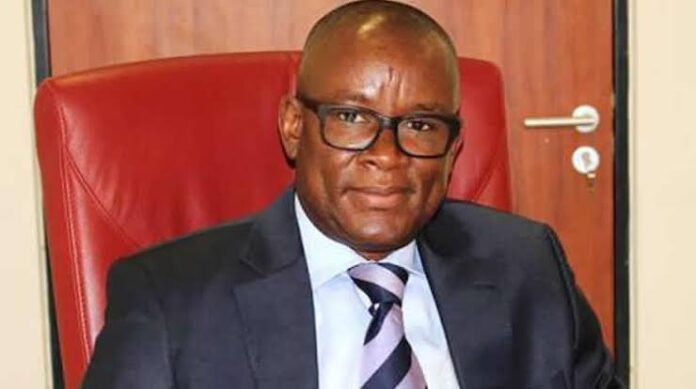By Ladi Gbegi
The Minister of State for Industry, Trade, and Investment, Sen. John Enoh, has highlighted the ministry’s impact on industrial expansion, manufacturing growth, and digital economy advancements.
Speaking at the Renewed Hope Global Virtual Conference 2025, Enoh reaffirmed the Federal Government’s commitment to accelerating industrialization through strategic policies and investments.
“The ministry may not be building roads and bridges, but its influence is evident in industrial expansion, manufacturing growth, and digital transformation,” he said.
He noted that Agenda Seven of President Bola Tinubu’s economic blueprint prioritizes industrialization through the digital economy, manufacturing, and innovative technology, adding that the ministry’s performance is periodically evaluated based on achievements in these areas.
Enoh urged stakeholders to review the 2025 Outlook on the ministry’s website, which outlines key objectives and measurable targets for industrial growth.
Addressing concerns over tariff holidays on essential goods, the minister emphasized that all government policies are being implemented, but pricing outcomes are influenced by broader economic factors.
“The government does not announce policies without intent to implement them. However, price fluctuations are impacted by infrastructure, power supply, and transportation costs, which go beyond tariff reductions,” he explained.
Despite persistent challenges in the manufacturing sector, such as inadequate power supply and logistics constraints, Enoh reaffirmed the government’s commitment to overcoming these barriers.
“We are determined to make industries work and ensure manufacturing thrives in Nigeria,” he stated.
He also highlighted ongoing engagements with key industry stakeholders, including the Manufacturers Association of Nigeria (MAN), the National Association of Chambers of Commerce, Industry, Mines and Agriculture (NACCIMA), and the Nigerian Association of Small and Medium Enterprises (NASME).
Enoh praised President Tinubu’s pro-business stance, noting that the administration sees inherited economic difficulties as opportunities for meaningful reform.
He further emphasized Nigeria’s involvement in the Special Agro-Processing Zones (SAPZs) initiative, supported by the African Development Bank (AfDB) and other financial institutions.
“An initial $570 million facility benefited eight states. During the African Investment Summit in Rabat, Morocco, an additional $5 billion was secured, reflecting strong investor confidence in Nigeria,” he revealed.
To further drive industrialization, Enoh announced that the government is establishing industrial zones and hubs to enhance efficiency and support agro-industrial growth.
“This administration is intentional about creating an enabling environment for industries. We will build on past successes and do even more to ensure Nigeria remains competitive in global trade and manufacturing,” he assured.





